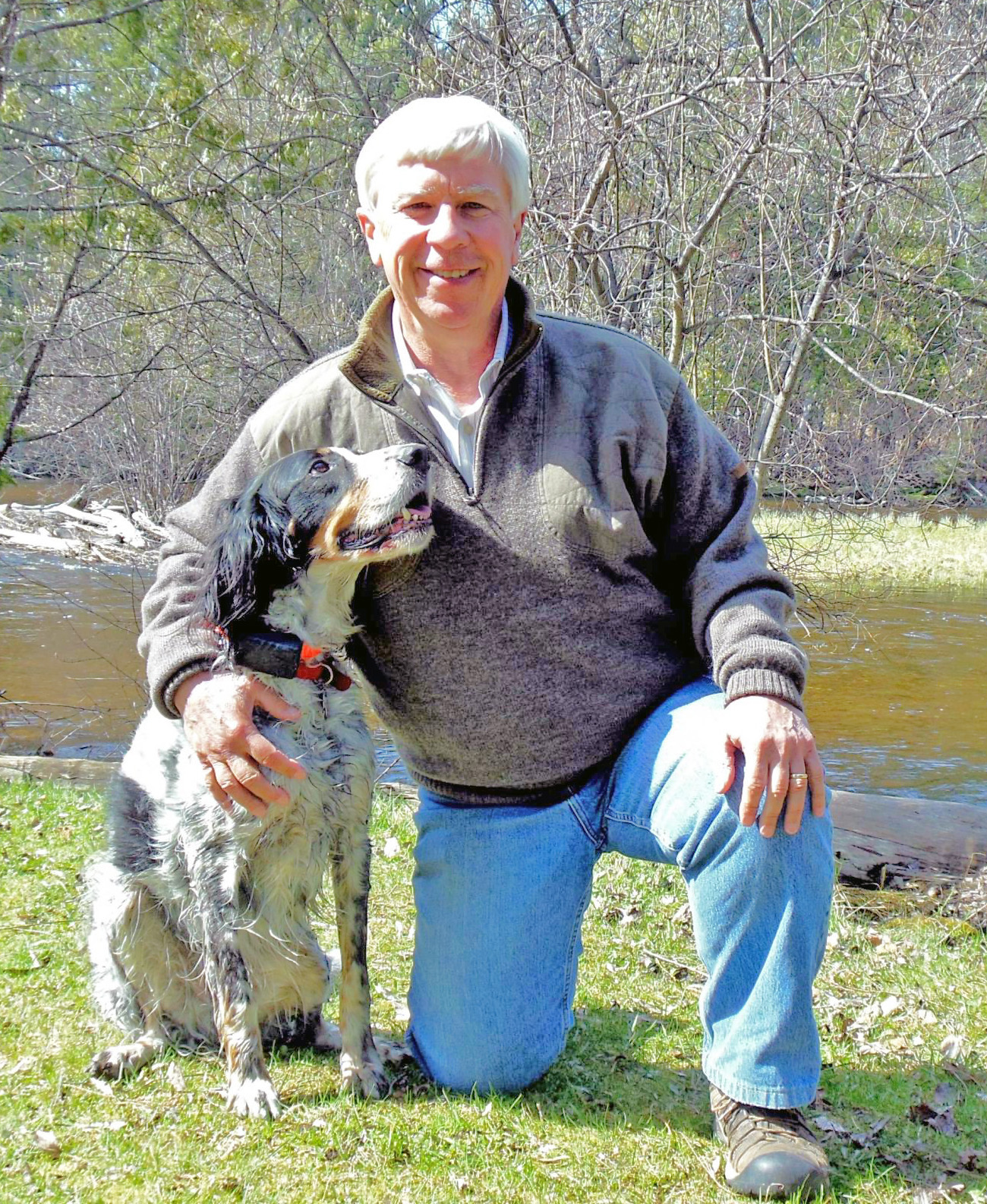 Angler of the Au Sable and steward of the resource, Tom Baird, was honored as the 2019 Dr. Howard A. Tanner Award recipient for his achievements in furthering the understanding and protecting anadromous fish in Michigan’s rivers and streams.
Angler of the Au Sable and steward of the resource, Tom Baird, was honored as the 2019 Dr. Howard A. Tanner Award recipient for his achievements in furthering the understanding and protecting anadromous fish in Michigan’s rivers and streams.
Tom was born in Grand Rapids, MI and received his B.S. and M.S. Degrees from Grand Valley State University prior to receiving his Juris Doctorate degree from the University of Michigan in 1978. He has practiced law in Lansing, MI since 1978, specializing in labor law and civil rights, as well as conservation and environmental law. He is a member of the Anglers of the Au Sable executive committee and chair of its legal and government affairs committees. He served on the board of FLOW (For the Love of Water, Traverse City, MI) and the advisory board of the League of Conservation Voters.
In 1987, he got involved with Anglers of the Au Sable and the river has become his home water. He represented Anglers of the A Sable in its battle against expansion of Camp Grayling, hydro dam relicensing at the Federal Energy Regulatory Commission, oil drilling on the Mason Tract of the South Branch, discharge of “remediated” oil spill water into Au Sable headwaters at Kolke Creek, water withdrawals for fracking on the upper Manistee River, state oil mineral leases within the Holy Waters corridor, the Grayling Fish Farm fight, and the expansion of aquaculture in Michigan waters where he joined forces with the Michigan Steelheaders, MUCC, Michigan Trout Unlimited, and the Michigan Environmental Council in the fight against net pens in the Great Lakes.
Tom’s most recent and truly remarkable accomplishment in protecting the anadromous sport fishery and indigenous stream fishery occurred this past fall when the Anglers of the Au Sable successfully settled the Grayling fish farm case. After five years and hundreds of thousands of dollars, the Anglers of the Au Sable were able to buy out the operator and take over the old fish hatchery. The pollution will stop, and the hatchery will be returned to its prior status as a tourist attraction and educational facility.
In Tom’s own words, “Clean water and sound management of our natural resources are the keys to our sport fishery and the recreational fishing industry. I can’t stress this enough: conservation and environmental groups need to get better at working together. We’ll have our differences, but they are far outweighed by our common interests in healthy sustainable natural resources. The Grayling fish farm case is proof positive of that.”
